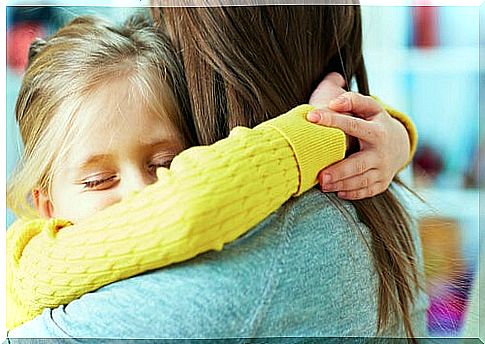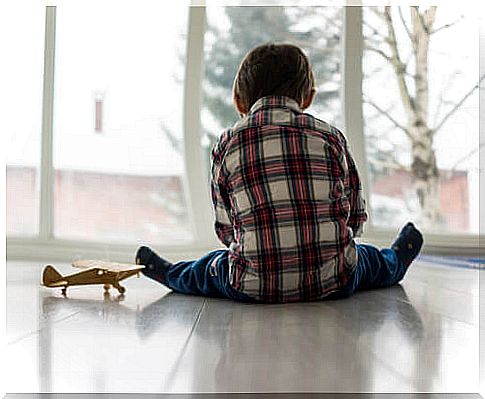The Importance Of Teaching Children To Forgive

Teaching children to forgive is essential in parenting if they are to become happy, responsible adults.
Asking for forgiveness and forgiving is one of the keys to achieving happiness and finding inner peace. It is also the perfect combination to achieve lasting relationships, whether in family, friendships or even in business.
Teaching children to forgive is one of the most difficult tasks you will ever have as a mother. Find out why this is so important and how to apply it in the education of the little ones.
The importance of teaching children to forgive
A child who asks for forgiveness recognizes mistakes and feels responsible for them. That’s why it’s so important to teach children to ask for forgiveness and to forgive. They will become responsible adults and will work to improve their qualities.
With forgiveness they will be able to develop empathy and strengthen their emotional health. This will help to overcome obstacles that will appear on a daily basis.
The value of forgiveness for children
Forgiveness is considered one of the most appreciated values by human beings. It is essential to teach children that forgiveness can help all parties involved. The offender is released from the guilt he feels and the victim lets go of the resentment caused by the accumulation of hatred.
For these reasons, it is important to:
- Know how to forgive. Accept that the offender must not make up for the mistake and that the misunderstanding must be forgotten.
- Ask for forgiveness. It involves acknowledging the guilt and harm done to the other person. This attitude requires humility and the ability to repent, which in turn will change offensive attitudes.

How to teach children to forgive?
When very young, children are not aware of the harm they can do with words or actions. However, this changes as they grow. They begin to realize the consequences of their actions. Therefore, it is necessary to incorporate some attitudes into daily life that show the value of forgiveness.
See the recommendations below and, if necessary, adapt to your child’s personality or learning habits:
teach by example
The first place children learn is at home, through their parents’ example. For this reason, avoid speaking ill of others around your child or showing anger in front of them. Instead, be humble and ask for forgiveness. This way they will learn that everyone can make mistakes and also deserves to be forgiven.
teach to forgive
In order to teach children to forgive, you need to talk to them and explain that sometimes the person who offends doesn’t know the harm they’re doing. Explain that people can make mistakes, and forgetting about them will help you feel better about yourself.
Boost self-esteem
Boost your child’s self-esteem by always treating them with love. Impose coherent limits and rules that develop the critical capacity to be able to differentiate the circumstances and be able to say “no” when necessary. Pay close attention, celebrate the positive things, and have him identify the learning in each mistake made.
Paying attention to this stage of education will make the child a person without resentment, pain or resentment. This will help you grow in life. In addition, she will understand that all human beings have a physical and emotional space that must be respected.

Explain the downside of grudges
Use games, games, movies, stories or common situations so that children understand the downside of not being forgiving. Explain that resentment is a pain that only the person who refuses to forgive feels and that this pain can impede lasting relationships.
With lots of love, teach your child to put bad thoughts out of his mind.
Expressing feelings is key
In different situations encourage the child to express feelings and emotions in a positive and calm way. Let the child cry if he needs to and tell him that it’s okay. Or, if she feels more comfortable, suggest she express her emotions by drawing or building something out of clay for example. In this way, the child will be able to learn to channel emotions properly.
It’s essential to teach your child to forgive, but it’s also important to help him recognize and put limits on toxic relationships. This way, he will stay away from bad feelings like anger, hatred and even envy. Using the tools at your disposal (stories, games, movies) it is possible to form an emotionally stable adult.









